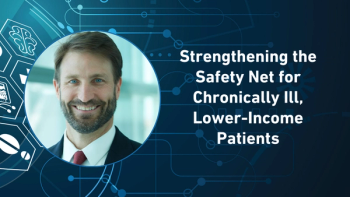
NEHI: Medication adherence needs better coordination among stakeholders
Pharma industry serves best as underwriter of healthcare providers' efforts
The success in getting patients on therapy, and keeping them there for chronic conditions, is a well-known goal of both the biopharma industry and of healthcare providers and payers; better adherence is a win-win all around in better care and lower overall costs. Now, in a recently released study and an educational session held on Capitol Hill on March 1, NEHI (formerly known as the New England Healthcare Institute; nehi.net), a private-public policy consortium, is saying "the table is set" for managing better programs. Effective technologies and processes are becoming known, and the Patient Protection and Affordable Care Act is putting medication adherence on the priority list of quality measures by which providers will be evaluated.
"Efforts such as medical homes, the ability to review all the medications a patient is on through the electronic health record (EHR) data, and funding for medication therapy management (MTM) by pharmacists show great promise," says Tom Hubbard, senior policy director at NEHI. "Now the challenge is to connect these pieces in a coordinated manner."
Biopharma supports medication adherence directly, through coupon programs, patient support and education, and innovations in packaging. "Smart pillboxes and similar telehealth innovations can make a difference," says Hubbard. He also cites the clinical research performed with pharma support to develop adherence estimators and screening systems to predict adherence problems. But overall, says the NEHI report, the heart of medication adherence efforts should reside among primary care providers and pharmacists, who can deal with specific patient needs and who can access details on the medical condition of the patient. (Left unsaid, but a factor in this dynamic, is the criticism pharma companies suffer from stakeholders who believe pharma's motivation is simply to sell more pills, and from privacy advocates who believe that the pharma industry should not be a party to a patient's medical care.)
NEHI's report, "Roadmap to Improved Patient Medication Adherence," is available at NIHI's
Newsletter
Stay ahead in the life sciences industry with Pharmaceutical Commerce, the latest news, trends, and strategies in drug distribution, commercialization, and market access.




